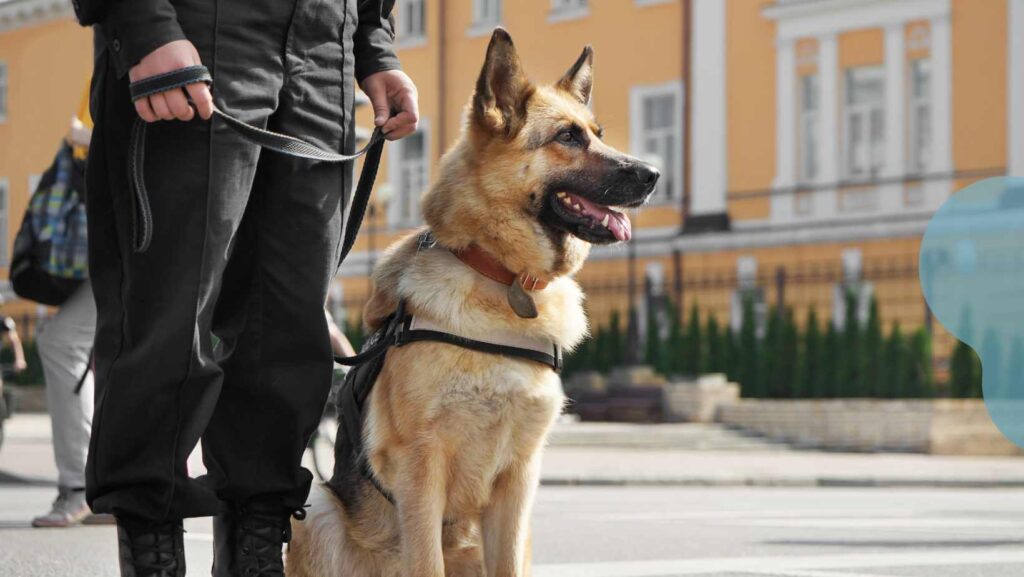Are German Shepherds lazy? No, your average German Shepherd is not going to be a generally lazy dog. German Shepherds were bred to be working dogs, excelling in positions such as rescue dogs, police dogs, and service dogs. They need quite a lot of both physical exercise and mental stimulation each day to be happy.
German Shepherds, known for their intelligence and loyalty, are popular canine companions. However, there’s a common question among owners: “Are some German Shepherds lazy?” Let’s delve into this inquiry and unravel the factors influencing the energy levels of these remarkable dogs.

1. The Nature of German Shepherds
German Shepherds are inherently active and energetic dogs, bred originally for herding and guarding. Exploring their natural tendencies helps decipher if laziness is a breed characteristic.
2. Individual Variations in Energy Levels
Like humans, dogs exhibit individual variations in energy levels. Genetics, health, and age play pivotal roles in determining whether a particular German Shepherd leans towards being more laid-back or exuberant.
3. Health and Laziness: A Correlation?
Poor health can impact a dog’s energy levels. Investigate whether underlying health issues contribute to apparent laziness in your German Shepherd.
4. Age and Energy Dynamics
Puppies are bundles of energy, but as German Shepherds age, their activity levels might fluctuate. Examine how age influences their playfulness and vitality.
5. Diet and its Impact
Nutrition is a cornerstone for a dog’s well-being. Explore the connection between diet, metabolism, and your German Shepherd’s overall energy.
6. Environmental Factors
The surroundings in which a German Shepherd lives can affect its energy levels. Discuss how living conditions and mental stimulation contribute to their overall activity.
7. Exercise Requirements for German Shepherds
German Shepherds thrive on physical activities. Create an exercise routine that caters to their need for both mental and physical stimulation.
8. Signs of Laziness vs. Relaxation
Distinguish between laziness and relaxation in your German Shepherd. Understanding their body language and behavior helps interpret their state of mind accurately.
9. Behavioral Training for Energy Management
Explore effective training methods that channel your German Shepherd’s energy positively. Training plays a crucial role in maintaining a healthy balance between playfulness and calmness.
10. Mental Stimulation: A Key Element
Engage your German Shepherd’s mind with puzzles, games, and training exercises. Mental stimulation is as vital as physical activity for these intelligent dogs.
11. Overcoming Laziness: Tips for Owners
For owners facing challenges with a seemingly lazy German Shepherd, provide actionable tips to instill a more active lifestyle in their furry friend.
12. Seeking Professional Advice
When in doubt, consult a veterinarian or professional dog trainer. Discussing concerns with experts can unveil underlying issues and provide tailored solutions.
13. Myth Busting: Dispelling Common Misconceptions
Address prevalent myths surrounding German Shepherd laziness, offering factual insights to dispel misinformation.
14. Embracing Your Shepherd’s Unique Traits
Celebrate the individuality of your German Shepherd. Each dog is distinct, and acknowledging and appreciating their unique traits fosters a stronger bond between you and your pet.
15. Conclusion: Nurturing a Healthy, Happy German Shepherd
In conclusion, understanding your German Shepherd’s behavior requires a multifaceted approach. By considering factors such as genetics, health, environment, and training, you can foster an environment that nurtures a healthy and balanced energy level in your beloved pet.
Frequently Asked Questions (FAQs)
Q: Can German Shepherds become lazy as they age?
A: While energy levels may decrease with age, maintaining an active lifestyle through appropriate exercise and mental stimulation can mitigate laziness.
Q: How can I tell if my German Shepherd is just relaxing or truly lazy?
A: Observe their body language. A relaxed dog will have a calm demeanor, while a lazy dog may exhibit disinterest in activities they once enjoyed.
Q: What role does diet play in a German Shepherd’s energy levels?
A: Nutrition is crucial. A balanced diet supports overall health, impacting energy levels and vitality.
Q: Are there specific health issues that can cause laziness in German Shepherds?
A: Yes, underlying health problems such as joint issues or thyroid disorders can contribute to lethargy. Regular veterinary check-ups are essential.
Q: How much exercise does a German Shepherd need daily to stay active?
A: On average, German Shepherds require at least 30-60 minutes of physical activity daily, but individual needs may vary.








